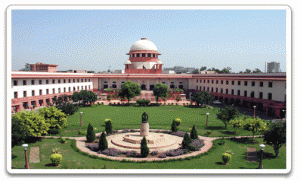By Richard Ammon
GlobalGayz.com
February 24, 2012
As we speak, the Supreme Court of India is hearing a landmark case regarding the legality of homosexuality in that country. The debate focuses on the antiquated victorian law that criminalizes homosexual behavior which the British imposed on India (and all of its empire colonies around the world) in the 19th century. (Currently, 38 of the 54 members of the Commonwealth criminalize homosexuality — particularly countries in Africa and the Middle East.) In 2010 the Delhi High Court struck down the law as unconstitutional which effected only the district of Delhi, but was very symbolically influential since Delhi is the capital.
This very week the trial continues with opponents appealing the Delhi decision to the country’s highest court. It’s hard to think that modern judicial thinking could continue to allow such a discriminatory law. The lives of millions of LGBT Indians citizens will be effected by this court ruling.
One of India’s more intelligent gay activist is Vikram D who recently expressed his thoughts on the court deliberations by posting the following comments on GayBombayYahooGroup.org, the country’s leading LGBT blog site. Here is what Vikram D has to say about judges, court rulings, open homosexuality and the value of coming out:
The Bowers vs Hardwick Moment
Posted by: Vikram D vgd67@yahoo.co.uk vgd67
http://www.gaybombay.org
Feb 24, 2012
“Mr.Malhotra, by the way, nothing to do with the case, but do you know any person who is homosexual,” asked the Bench.
“Nobody my lord,” replied Mr.Malhotra.
“They are avoiding our court,” joked the Bench. “You don’t know anybody?”
“I must confess my ignorance about modern society,” said Mr Malhotra.
“We appreciate your ignorance,” joked the Bench.It is an interestingly worded exchange, both Malhotra’s equation of ‘modern society’ with knowing homosexuals and the nicely ambiguous way in which the Bench expresses its appreciation for him. I have no idea of knowing if the judges are aware of this, but there is an echo here of one of the most poignant gay rights moments – Justice Lewis Powell’s deciding vote in Bowers vs.Hardwick, the 1986 case which confirmed the criminalisation of homosexuality in the US, until it was finally and explicitly overruled in Lawrence vs.Texas (2003) when Justice Anthony Kennedy who, as it happened, was Powell’s successor on the court wrote: “Bowers was not correct when it was decided, and it is not correct today. It ought not to remain binding precedent. Bowers v. Hardwick should be and now is overruled.”
Bowers was a 5-4 decision, and the deciding vote was Powell’s. This came as a shock to activists, because while Powell was a conservative, he had voted in the past to protect privacy in several cases and, most notably, was in the majority in Roe vs.Wade, the abortion case that conservatives loathe above all. And Powell would regret his vote in Bowers – while Justices rarely express second thoughts in public, if they have them at all, Powell did later admit, “When I had the opportunity to reread the opinions a few months later I thought the dissent had the better of the arguments.”
So why did Powell vote against gay rights in Bowers? There could be several reasons, but from what has been learned from his clerks at that time, he spent little time thinking about the case, and one of the key reasons that made up his mind was that he didn’t know any gay people, and so let himself be swayed by his instinctive dislike of the idea of gay sex. Of course, that wouldn’t count as a legal reason. but he asked his clerks to prepare arguments, and he went with those prepared by a strongly religious clerk.
To another clerk at that time, Powell mentioned that he didn’t think he had ever met a gay person. The clerk is said to have replied, “Certainly you have, but you just don’t know that they are”, but left it at that. And the irony? That clerk was gay himself, and Powell had had several other gay clerks, but none had ever dared be open about their sexuality. So Powell was influenced by the personal knowledge he could have had and went with his prejudices, and Bowers was law in the US for 16 more years.
Mr.Malhotra doesn’t come across as a particularly enlightened individual, so one doesn’t know if knowing gay people would change his views. Yet the basic point remains that prejudices stem from ignorance, and knowing particular people can change more generally held views. It is often debated whether Powell’s clerk should have come out, or if you had been Powell’s clerk would you have done what he did. It is easy to say you could have come out, but that doesn’t take into account the personal or professional situation that clerk was in. All one can say is that it is better in the long run, for you and the society you live in, for more people to be out, and for real understanding and tolerance to come that way.
Five days of arguments into this case, it is still way too early to speculate on where this Supreme Court case heading. Yet it is interesting to note that one constant thread of questioning from the Bench is whether homosexuality is just a sexual act or whether it can define a class of persons, whether sexuality rather than just a sex act can be an established reality, and if a community based on sexuality can exist. There will be ample time to debate these questions and I am sure good arguments will be made from our side, yet the best of arguments is really when someone you know and maybe like or respect, and certainly whose reality as a person cannot be denied, turns out to be openly and ashamedly gay. Whatever happens in this case, the need for us to make this argument in such a basic way will continue to be vital,
















